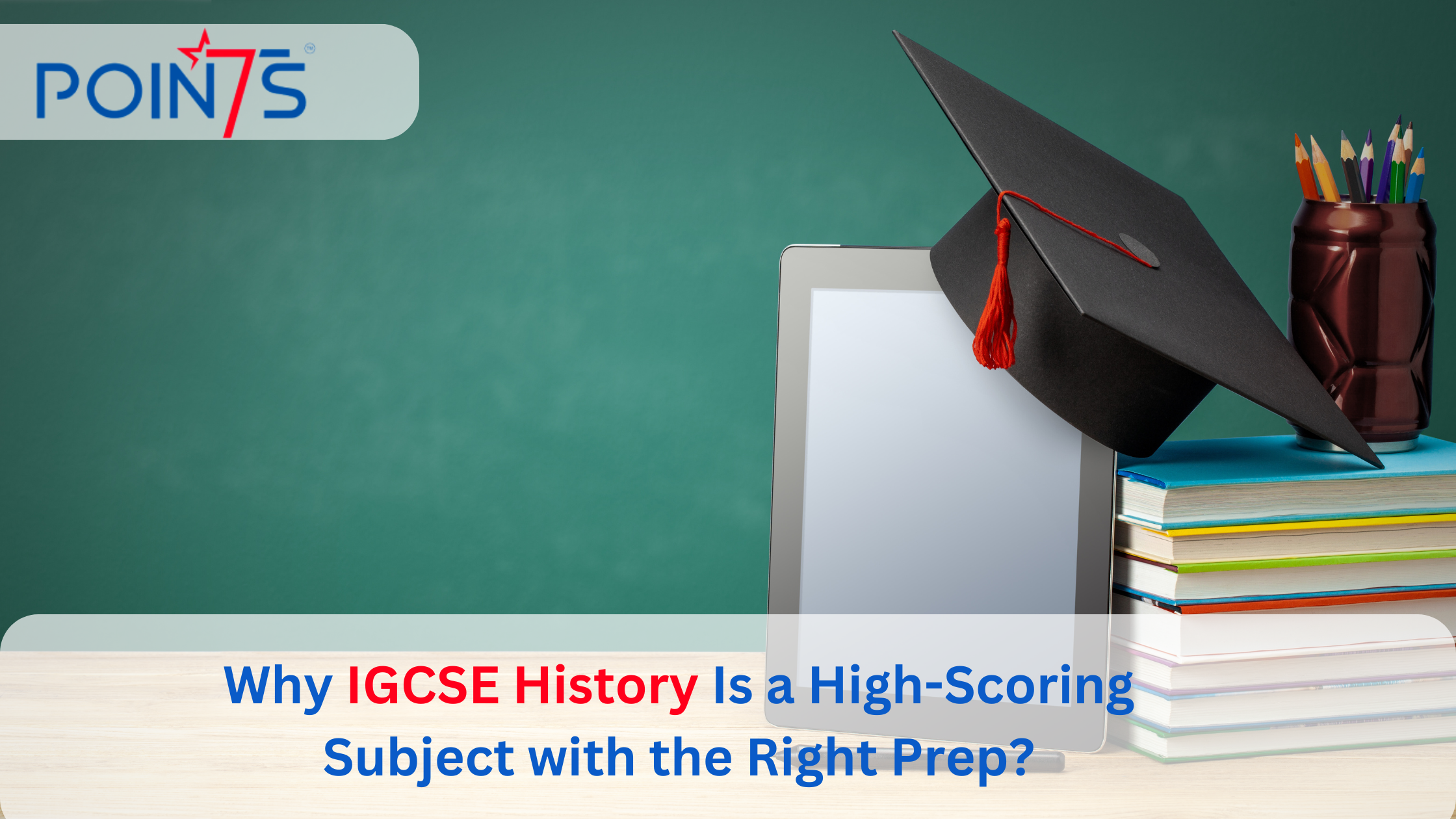Many students view History as a subject that’s hard to master. But it actually rewards those who prepare smartly. Since the exam focuses on structured answers and critical analysis, students with clear writing and thinking skills often excel.
If you understand how to interpret sources, evaluate causes and consequences, and present coherent arguments, History can become a very score-friendly subject. Read on to learn how you can turn this opportunity into your academic advantage.
Understand the Exam Format and Marking Scheme
Before diving into content, get familiar with the exam structure. Knowing how you’re assessed shapes your entire preparation strategy. It helps you prioritise what to study and how to approach each section.
Paper Composition:
IGCSE History typically includes structured questions, source-based questions, and essay-type responses. Each paper tests different skills, some focus on factual recall, while others test interpretation and argumentation.
Marking Priorities:
Examiners look for clarity, relevance, and structure. Writing in paragraphs, staying focused on the question, and using appropriate historical terms can help you meet the marking criteria.
Assessment Objectives:
You’ll be evaluated on your knowledge, source interpretation, and ability to construct logical arguments. Mastery over these areas is key to a top grade.
Mastering Content Without Cramming

Covering the syllabus effectively is about smart revision, not last-minute cramming. You need a strategy that helps you retain and apply your knowledge under pressure.
Use Thematic Timelines:
Organise your revision by topics and timelines. Focus on key events, turning points, and their consequences. This method helps in linking causes and effects—a must for essays.
Conceptual Clarity Over Rote Learning:
Understanding themes like nationalism, imperialism, and revolution can help you answer multiple questions, even unfamiliar ones. This is where expert IGCSE history tutors from Points Edulabs can provide structured clarity.
Visual Aids:
Charts, diagrams, and flashcards simplify complex information and make revision easier. Use color coding to organise your notes for quick reference.
Writing Clear and Persuasive Answers
Even if you know the content well, your writing style plays a huge role in scoring high. The ability to structure your responses can make or break your performance.
Use PEEL Format:
Make your point, explain it, provide evidence, and link back to the question. This method ensures every paragraph is relevant and impactful.
Plan Before You Write:
Always spend a few minutes outlining your response. A quick structure helps you stay on topic and manage your time better.
Practice Full-Length Answers:
Build writing stamina by simulating exam conditions. Ask your IGCSE tutors to mark them for feedback and improvement.
Source-Based Questions: Decode, Don’t Panic
Many students get nervous about source-based questions, but they’re an opportunity to score well if you know what examiners expect. This section tests skills more than memory.
Understand the Source Type:
Identify whether it’s a primary or secondary source. Look at its origin, purpose, and context before jumping to interpretation.
Use Proven Techniques:
Apply OPCVL (Origin, Purpose, Content, Value, Limitations) where applicable. This shows depth of analysis and critical thinking.
Don’t Just Describe Analyse:
Go beyond stating what the source says. Link it to your knowledge and the question. This proves your understanding and boosts your grade.
Mastering Time Management in the Exam Hall
Many students lose marks not because they don’t know the answers, but because they run out of time. Pacing your exam is as important as knowing the content.
Split Time Per Section:
Allocate minutes based on marks per question. Stick to it even if you’re tempted to overwrite one answer, save time for the next.
Leave Room for Review:
Aim to complete your paper with at least 5–10 minutes left. This buffer helps you fix small errors and polish your answers.
Use Bullet Points for Planning:
Jot quick outlines before answering essay questions. This keeps you on track and avoids repetition or drifting off-topic.
How to Choose the Right Study Materials

Your success depends a lot on using the right resources. Don’t waste time on materials that don’t match the exam format or syllabus.
Follow the Syllabus Guide:
Start with the official syllabus to understand themes, topics, and required skills. Then pick textbooks that align with it.
Past Papers Are Gold:
Practice with as many IGCSE past papers as possible. They help you understand question trends and marking expectations.
Get Guided Support:
Self-study works best when complemented by expert input. At Points Edulabs, our IGCSE history tutors help you focus on the right materials, saving time and boosting results.
The Role of IGCSE Tutors in Achieving a Grade 10
A qualified tutor can help personalise your learning strategy, track your progress, and fill gaps that general revision can’t cover. With focused one-on-one attention, you build confidence and clarity.
Targeted Feedback:
IGCSE tutors can pinpoint specific areas you need to improve, whether it’s content gaps or writing structure.
Practice & Review Cycles:
Working with a tutor ensures consistency. You practice regularly, get feedback, and improve faster.
Exam Strategy Planning:
Tutors help develop individual strategies for tackling essays, source questions, and time-bound writing tasks. Points Edulabs specialises in creating this tailored approach to help students secure the top band.
Staying Motivated and Stress-Free During Prep
Maintaining mental focus is just as important as academics. When stress creeps in, it can affect your memory and writing flow. Here’s how to stay calm and in control.
Break It Into Phases: Divide your study plan into weekly goals. This makes large tasks manageable and builds a sense of progress.
Reward Yourself: Celebrate small wins completing a chapter, scoring well in a mock test, or improving your handwriting speed.
Stay Connected: Join study groups or interact with your tutors regularly. Peer discussions and expert insights reduce isolation and boost motivation.
Conclusion
Getting a 10 in IGCSE History is achievable with the right mix of preparation, consistency, and support. From mastering content to perfecting exam strategy, each step brings you closer to your goal. And you don’t have to do it alone.
At Points Edulabs, our expert IGCSE tutors and IGCSE history tutors are here to guide you at every stage of your academic journey. Whether it’s decoding sources, writing persuasive essays, or developing smart revision plans, we help you prepare not just harder, but smarter.
Let us help you make that perfect grade a reality.



